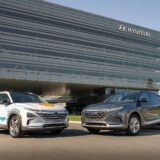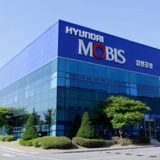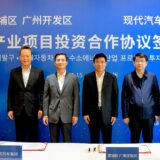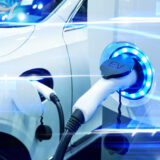Hyundai Motor offers early glimpse of its next generation fuel cell vehicle
South Korea’s Hyundai Motor has offered an early glimpse of its next generation eco-friendly vehicles well ahead of the hydrogen-powered SUV’s official launch early next year, as part of plans to expand its eco-friendly vehicles to 31 models by 2020.
At a special preview event held in Seoul recently, the near-production-ready version exhibited its impressive capabilities while revealing its futuristic design. The yet-to-be-named model embodies Hyundai Motor’s commitment to a new era for advanced eco-friendly vehicle development.
“The next-generation FCEV is symbolic of Hyundai Motor’s heritage and leadership. The new model unveiled today confirms Hyundai’s global leadership in FCEVs, while heralding the beginning of a hydrogen-based society,” Hyundai Motor Vice President Lee Kwang-kook said during the unveiling event in Yeouido, western Seoul.
The new SUV shown at the special event previews Hyundai Motor’s second commercially produced hydrogen model and uses the company’s fourth generation of hydrogen fuel cell technology. The vehicle, its capabilities and fuel cell technologies are an evolution of Hyundai Motor’s global research, development and real-world evaluation programs.
The new vehicle reinforces the company’s leadership in fuel cell-based electric-powertrain systems, created with expertise honed through the world’s first commercial production of a fuel cell vehicle in 2013, the company said.
Compared to the Tuscon ix FCEV, the latest FCEV boasts four upgraded features: efficiency, performance, longevity and energy storage system. The Tuscon ix FCEV is the world’s first mass-produced FCEV, launched by Hyundai Motor in 2013.
The new model has a fuel economy of 60%, higher than the 40% of the Ioniq EV that was named the No. 1 most efficient vehicle by the U.S. Environmental Protection Agency (EPA) last year.
For improved driving distance, Hyundai Motor is aiming to produce a long-range FCEV that can drive more than 580 kilometers on a full charge.
With an enhanced battery, the soon-to-be-released FCEV will be able to run for 10 years or 160,000 kilometres, equivalent to conventional combustion-engine powered vehicles, the company said.
The mass-produced new vehicle will also feature advanced driver assistance (ADAS) technologies, alongside its extensive hydrogen-powered range. Details of the new ADAS features will be disclosed in January at the 2018 CES in Las Vegas, Nev., U.S.A., along with the official model name.
“With exceptional efficiency, serene styling, and uncompromised performance, our next generation fuel cell SUV is the true epitome of an eco-friendly vehicle of the future,” said Lee Ki-sang, senior vice president of Hyundai Motor Group’s Eco Technology Center. “Hyundai Motor will take lead in developing and producing green energy vehicles that would ultimately complement a near-zero emission society.”
Hyundai Motor and Kia Motors sold a combined 141,681 eco-friendly vehicles between January and July this year, which is 10% more than the 128,975 units sold for the whole of 2016.
Hyundai aims to roll out 31 green vehicle models by 2020, adding three models to its original goal, the company said.
The 31 models are made up of 10 hybrid EVs, 11 plug-in EVs, eight EVs and two FCEVs.













